
Centering discussion on a patient scenario of multiply relapsed multiple myeloma, panelists consider use of CAR T-cell therapy or bispecifics in this setting.

Your AI-Trained Oncology Knowledge Connection!


Centering discussion on a patient scenario of multiply relapsed multiple myeloma, panelists consider use of CAR T-cell therapy or bispecifics in this setting.
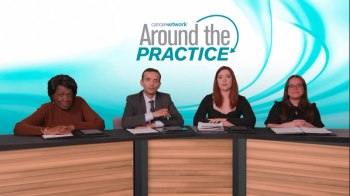
The panel shares closing advice for patients with multiple myeloma receiving teclistamab, and community providers and nurse practitioners administering teclistamab to patients.

A look at the quality of life of patients with multiple myeloma who received CAR T-cell therapy.
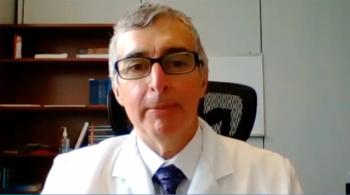
An expert from Duke Health says that patients with NPM1-mutatant relapsed/refractory acute myeloid leukemia did not experience any significant safety signals following treatment with ziftomenib.

Paolo Tarantino, MD, explains his approach to treating patients with triple-negative breast cancer who progress early after completing adjuvant therapy.

An overview of antibody-drug conjugates in the recurrent triple-negative breast cancer treatment landscape, and the ASCENT and DESTINY-Breast04 trials.
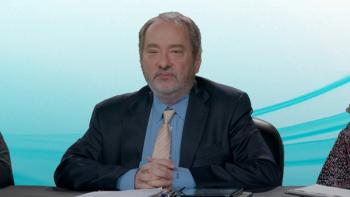
Closing out the panel discussion, experts review the management of bispecific-related toxicities and share their final thoughts on treating patients with multiple myeloma.

Expert oncologists discuss Belantamab mafodotin, its recent withdrawal from the U.S. market, and the clinical implications of the DREAMM trials for patients with R/R multiple myeloma.

At the recommended 600 mg dose, ziftomenib interestingly produced complete remissions in patients relapsed/refractory acute myeloid leukemia who harbored NPM1 mutations .

An expert from Duke Health reviews the design of the phase 1/2 trial of the KOMET-001 study in heavily pretreated patients with relapsed/refractory acute myeloid leukemia.

Expert insight on selection of androgen deprivation therapy and how related adverse events may be communicated to patients in advance.

Urologist David Morris, MD, FACS, shares his perspective on communicating cardiovascular risk to patients starting androgen deprivation therapy.
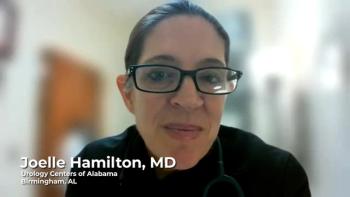
Joelle Hamilton, MD, reflects on strategies used in oncology practice to mitigate cardiovascular risk in patients with prostate cancer.
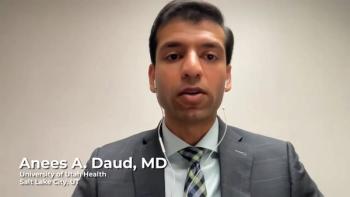
Insight is provided on strategies that may be employed to mitigate cardiovascular risk in patients receiving care for prostate cancer.

Luciano J. Costa, MD, PhD, discussed the future treatments being evaluated for the treatment of multiple myeloma.
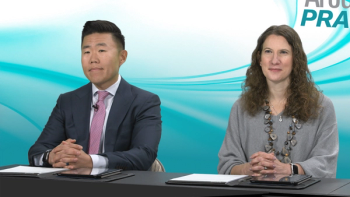
Dr Daniel H. Ahn explains the logistical concerns of ctDNA testing in colorectal cancer.
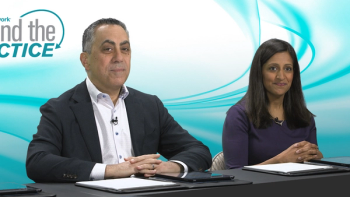
Aparna Parikh, MD, MS, defines circulating tumor DNA (ctDNA) and the use of ctDNA assays in colorectal cancer.

Shared insight from Terri Blalock and her caregiver, Kaitlin Blalock, regarding the diagnosis of renal cell carcinoma Terri received following a number of symptoms.

Expert oncologist Hans Hammers, MD, PhD, spearheads an overview on renal cell carcinoma, covering its current incidence and known risk factors.
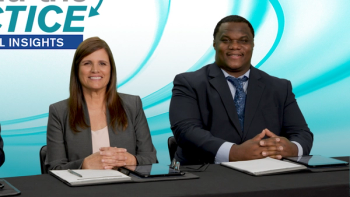
Shared insight on the development of CAR T-cell therapies and their use in the later-line setting for patients with multiply relapsed multiple myeloma.

Expert perspectives on the combination of novel bispecific therapies and where they may fit into the treatment paradigm of relapsed/refractory multiple myeloma.

Luciano J. Costa, MD, PhD, discussed additional studies evaluating various treatment regimens for transplant-ineligible patients with newly diagnosed multiple myeloma, aiming to determine the best standard in this population.

The panel continues their discussion on infection risk with a look at the immunosuppressive effects of BCMA-targeting bispecifics.

The panel discusses the importance of discussing COVID with patients with multiple myeloma and stressing the need to get vaccinated.

Shilpa Gupta, MD, shares the current standard of care for muscle-invasive bladder cancer and highlights other options that may be suitable for some patients.

Luciano J. Costa, MD, PhD, discussed the results from the phase 2 GRIFFIN study, designed to evaluate the combination of daratumumab, bortezomib, lenalidomide, and dexamethasone in transplant-eligible patients with multiple myeloma.

Expert oncologists discuss treatment options in the setting of recurrent triple-negative breast cancer.

Hope S. Rugo, MD, FASCO, and Paolo Tarantino, MD compare treatment approaches for HER2-low and triple-negative breast cancer.
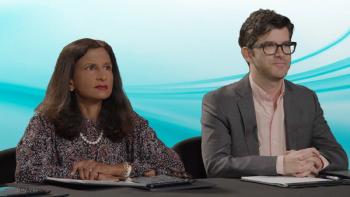
Shared perspective on the potential role of ADCs, CAR T-cell therapy, and other agents in combination treatment with bispecifics for patients with multiple myeloma.

Focusing their discussion on clinical data in R/R multiple myeloma studies, panelists highlight current and emerging bispecific antibodies for treating patients that have progressed after multiple lines of therapy.